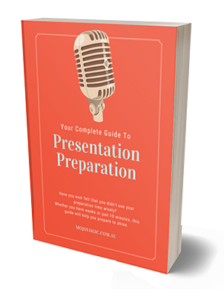Arguments are to be avoided, they are always vulgar and often convincing.
-Oscar Wilde
It is better to debate a question without settling it than to settle a question without debating it.
-Joseph Joubert
What is an argument?
An argument is an adversarial exchange of opposing points of view.
It is not, by definition, an emotionally charged feud. However, human nature is such that disagreement often leads to dissension, aggression and hurt feelings. Not everybody finds this fun.
To engage or not to engage?
Engaging in an argument simply to get the upper hand is an exercise of the ego. It does not make you erudite, philosophical or admirable. It makes you argumentative.
So, when should you enter into an argument?
- You believe it matters
- There is a clear benefit beyond bolstering your ego
- The other party is erroneously misleading others
- It is your job to interrogate
- A group of people have willingly engaged in the process and they expect discourse and potential disagreement
- You believe a debate will result in a better outcome, possibly even consensus
- It is just for fun and you know both parties view the exchange as sport. Feelings won’t get hurt
- You know the ensuing argument is appropriate to the situation, relationship and subject matter
As a former but not reformed debater I know that with the right set of skills, you can argue just about anything. And you might win. This does not mean you should.
Cultivating your ability to engage, to put forward cogent positions and to win, will give you power.
How to win an argument by focussing on the argument
Your opponent puts forward a rational position and backs up that position with evidence. Your role is to counter that argument with contesting logic, also backing up your claims with evidence.
The argument is a rational position asserted by your opponent. When refuting an argument you should stay in realm of the rational. This means you avoid personal attacks and emotional manipulation. Rather you craft a position that is based on empirical evidence.
Types of argument
Inductive Argument
An inductive argument starts with a specific statement (or statements) and moves to a general statement or conclusion. Inductive arguments typically draw generalisations from a set of statements that are true.
Example
Teenagers engage in reckless behaviour more than the general population.
When driving a car, reckless behaviour leads to accidents and death.
Teenagers should be prevented from driving cars.
To refute an inductive argument:
- Question the veracity of the specific statements – can your opponent prove the statements are true?
- Highlight the lack of causal link – is it reasonable to make the generalisation?
- Point out immaterial examples – is there enough evidence to draw a generalisation?
- Create a parallel example to highlight a flawed conclusion
Deductive Arguments
A deductive argument draws a conclusion based on a stated premise, which is true. In a deductive argument there is a necessary connection between the premise(s) and the conclusion.
Example
Workers will lose job opportunities if more jobs are transferred offshore.
Globalisation means more jobs will be transferred offshore.
Workers will lose job opportunities if globalisation continues.
To refute a deductive argument:
- Look for assumptions and question them.
- Interrogate their starting position – is it true? Is it relevant?
- Follow the logical arc of your opponents positions and analyse for fallacious statements. More information on logical fallacies here.
- Expose illogical conclusions by using extrapolation
- Step out of the detail – if the discourse becomes mired in the detail you can revert to the big picture?
- Dive into the detail – if the evidence provided is unvalidated question its veracity – do they have sources? Are the sources reputable?
How to win an argument by focussing on the person
Play the ball, not the man.
So goes the received wisdom but it is wrong.
We all know that playing the ‘man’, no matter the competition, is also a successful and valid approach. Part of your goal in winning an argument is to decrease the credibility of the opposition. The same is true with a verbal bout. But lets keep it clean – no dirty tricks.
Consider the following tactics:
- Observe the style, pace, emotional involvement of your opponent – look for and exploit shaky areas
- Disrupt the flow of their roll – if they are building momentum, leveraging emotion, revving up the crowd – break the flow. Ask a question or seek clarification.
- Rip out the rug / go for the metaphorical jugular – Make your counter-argument strong
- Question their personal interest- what does your opponent stand to gain if they are deemed correct?
- Highlight any conflict of interest
- Illuminate bias – can you find evidence of confirmation bias or selective perception
Play the man AND the ball.
How to win a public argument
Sometimes the ‘win’ you are seeking is not about defeating your opponent but in winning over an audience or a third party. As is the case in a televised political debate.
If your target is the ‘room’, consider the following tactics:
- Concede some points, facts or assumptions. By making concessions you appear reasonable, thus strengthening your position when you go on the attack.
- Demonstrate your knowledge of the facts – if you have some ‘stats bombs’ drop them.
- Demonstrate your connections – if you have some names, drop them too (judiciously)
- Use humour (if appropriate) to win over the audience through entertainment
- Expose ‘motherhood statements’ and slogans. The repetitive catch phrases; ‘moving forward’, a ‘better tomorrow’ lose power when exposed. This can be done overtly or via some careful mockery.
- Expose instances political correctness. Poor arguments are often shrouded by an untouchable veil of political correctness.
- Involve the audience by asking rhetorical questions or requesting a show of hands. Try to create the impression that you and the audience are in this together.
Questionable tactics of the desperate
Winning isn’t everything and a ‘take no prisoners’ attitude will only damage your reputation in the long run. Steer clear of these tactics that are just not cricket:
- Heckling
- Belittling
- Bullying
- Attacking the person
- Physical intimidation
- Grandstanding
- Exploiting public fear
- Hiding behind rules and regulations
Insults are the arguments employed by those that are in the wrong.
- Jean Jacques Rousseau
So What?
Cultivating the art of the argument will help make you more persuasive and build your personal base of power yet many people shy away from the potential conflict. Choose wisely when to engage, practice the art of arguing well and you will win more.


